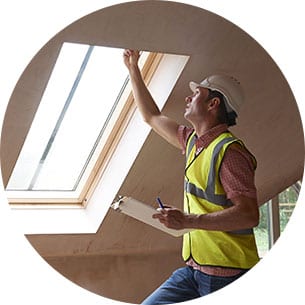As a homeowner, it is essential to ensure that your home is always safe and sound. A regular home inspection is an excellent way to achieve this goal. By conducting regular inspections, you can identify potential problems before they become major issues. Here are the top ten benefits of regular home inspections and why they are so important for keeping your home safe and sound.
Introduction
Your home is your castle, your sanctuary, and your safe haven. It is where you create memories, entertain friends and family, and relax after a long day. However, over time, wear and tear can take a toll on your home’s safety and soundness. That is why regular home inspections are crucial to ensure that your home is in good condition and safe to live in.
Benefits of Regular Home Inspections
- Early detection of problems: Regular home inspections can help you detect problems early on, before they become major issues that can compromise your home’s safety and soundness. Early detection can save you time and money in the long run.
- Improved safety: Home inspections can help identify safety hazards in your home, such as electrical problems, gas leaks, or fire hazards. By addressing these issues promptly, you can ensure the safety of your family and home.
- Increased property value: A well-maintained home is worth more than one that has been neglected. Regular home inspections can help you identify areas that need improvement and maintain your home’s value.
- Lower insurance premiums: Insurance companies may offer lower premiums to homeowners who have regular home inspections, as they are seen as less of a risk for claims. This can help you save money on your insurance premiums.
- Peace of mind: Knowing that your home is safe and sound can give you peace of mind and reduce stress. Regular home inspections can help you identify potential problems before they become major issues, giving you greater peace of mind.
- Improved energy efficiency: Home inspections can help you identify areas where your home may be losing energy, such as drafty windows or doors. By addressing these issues, you can improve your home’s energy efficiency and save money on your utility bills.
- Compliance with building codes: Regular home inspections can help ensure that your home is up to code and compliant with local building regulations. This can help you avoid fines or penalties for non-compliance.
- Avoiding costly repairs: By identifying potential problems early on, you can avoid costly repairs down the line. Regular home inspections can help you catch issues before they become major expenses.
- Identifying maintenance needs: Home inspections can help you identify areas that need maintenance or repair, such as a leaky roof or a clogged gutter. By addressing these issues promptly, you can avoid more significant problems in the future.
- Increased lifespan of your home: Regular home inspections can help you maintain your home’s structural integrity and identify potential problems before they cause significant damage. This can help extend the lifespan of your home and protect your investment.
FAQ’s
How often should I have my home inspected?
It’s recommended that you have your home inspected at least once a year, and more frequently if you notice any issues or changes in your home’s condition.
Do I need a home inspection if I’m buying a new home?
Yes, even if you’re buying a brand new home, it’s important to have a home inspection. New homes can have defects or issues that may not be immediately visible, and a home inspection can help identify any problems before you make the purchase.
Can I do my own home inspection?
While it’s possible to do your own home inspection, it’s not recommended. Home inspectors are trained professionals with the knowledge and expertise to identify potential problems and hazards that may not be apparent to an untrained eye.
What happens during a home inspection?
During a home inspection, a professional inspector will evaluate the condition of your home’s major systems and components, such as the roof, foundation, plumbing, electrical, and HVAC systems. They will provide a detailed report of their findings, including any potential issues or recommended repairs.
How long does a home inspection take?
The length of a home inspection will depend on the size and condition of your home. Typically, a home inspection can take anywhere from 2 to 4 hours.
Will a home inspection uncover every issue with my home?
While a home inspection is designed to identify potential issues and hazards, it’s important to note that not every issue may be discovered during the inspection. Some issues may be hidden or not immediately visible, and may only become apparent over time.
Conclusion
In conclusion, regular home inspections are essential for keeping your home safe and sound. By identifying potential problems early on, you can prevent them from becoming major issues that can compromise your home’s safety and soundness. A home inspection can also provide peace of mind, increase property value, and even lower insurance premiums. Don’t wait until it’s too late; schedule a regular home inspection today.




